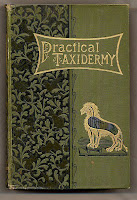Wong started vending dumplings from baskets balanced on a bamboo pole in the vicinity of Malacca port. His Cantonese taste buds had been triggered to localising the savoury steamed dumplings of his country to a sweet version made from rice flour and shredded coconut laced with gula Melaka.
The essential ingredient, gula Melaka, was the sap extracted from date palm flowers, boiled till thickened then poured into bamboo tubes for that extra aroma. Mixed with coconut, the result was a comforting chocolaty treat.
The essential ingredient, gula Melaka, was the sap extracted from date palm flowers, boiled till thickened then poured into bamboo tubes for that extra aroma. Mixed with coconut, the result was a comforting chocolaty treat.
As business grew, he had more money to spend on ingredients. "Why only have coconut on the inside of the dumpling?" he thought. "Coconut has such a refreshing crunch when raw, I will coat the dumpling with freshly grated coconut." These furry dumplings sold like hot cakes.
The next generation dumplings took on a colour change. Rice flour cooked with Pandanus leaf imparted a green colouration and a distinctive herbal flavour. The ladies were enchanted with the attractive green.
Despite brisk sales, Wong felt the dumpling had not reached perfection. He thought and thought and asked for feedback from his customers. Some admitted that being parched from a day of hauling cargo, the dumpling was rather dry and tended to stick in the throat.
A dumpling moment hit him. Fresh grated coconut outside, soft chewy green envelope: check. To avert the dryness of the bolus, he would replace the caramelised coconut centre with a liquid centre of gula Melaka instead. The result was a runaway success. People were queuing for not one or two dumplings, but packs of 6 or twelve.
Nothing missed Wong's keen eye. He noticed no one talked while eating. They stood or sat seriously contemplating their snack, waiting for the 'pop' of syrupy liquid goodness to ooze out, sensuously glide over the chewy green gelatin and then slosh onto the freshly grated coconut. Some even closed their eyes savouring the experience.
Regulars would educate new customers with a smile, "You must keep your mouth closed while you eat, otherwise you may squirt sugary delight onto the person in front of you."
And that's the story of Wong and his dumplings and how within a year he secured the lease for the coffee shop on Jonker Street.
The next generation dumplings took on a colour change. Rice flour cooked with Pandanus leaf imparted a green colouration and a distinctive herbal flavour. The ladies were enchanted with the attractive green.
Despite brisk sales, Wong felt the dumpling had not reached perfection. He thought and thought and asked for feedback from his customers. Some admitted that being parched from a day of hauling cargo, the dumpling was rather dry and tended to stick in the throat.
A dumpling moment hit him. Fresh grated coconut outside, soft chewy green envelope: check. To avert the dryness of the bolus, he would replace the caramelised coconut centre with a liquid centre of gula Melaka instead. The result was a runaway success. People were queuing for not one or two dumplings, but packs of 6 or twelve.
Nothing missed Wong's keen eye. He noticed no one talked while eating. They stood or sat seriously contemplating their snack, waiting for the 'pop' of syrupy liquid goodness to ooze out, sensuously glide over the chewy green gelatin and then slosh onto the freshly grated coconut. Some even closed their eyes savouring the experience.
Regulars would educate new customers with a smile, "You must keep your mouth closed while you eat, otherwise you may squirt sugary delight onto the person in front of you."
And that's the story of Wong and his dumplings and how within a year he secured the lease for the coffee shop on Jonker Street.












